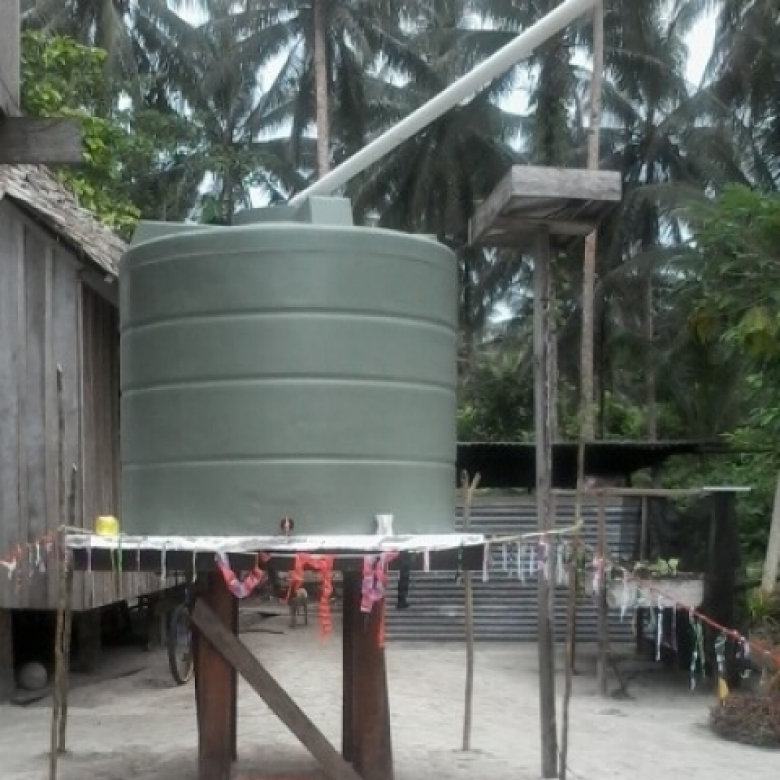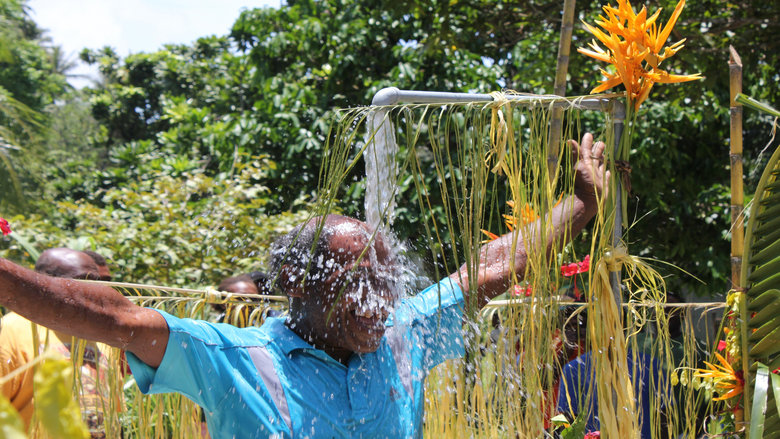Bolava Village, Western Province, Solomon Islands – Life began early in Bolava, when the rays of the South Pacific sun illuminated the ocean waters – and the oars of the canoes piloted by Bolava community members on their way to the closest main island. Every day, they paddled more than an hour each way to haul fresh, potable water for their families. Bathing, washing, and drinking were huge daily chores.
A lack of even basic drinking water and sanitation results in thousands of deaths each year, especially among young children, to highly communicable diseases such as cholera and typhoid. And given the complexities of climate change, reliable supply of safe drinking water is set to become more uncertain on isolated islands.
Today in Bolava, however, stand 20 new water tanks, each holding up to 2,000 liters of water. A new rainwater catchment and storage system, developed and operated by the community itself, is now in place. Clean drinking water is within eyesight.

The Bolava system was constructed as part of the second phase of the Solomon Islands Rural Development Program, improving the livelihoods of hundreds of thousands of citizens of this country in the Pacific. Jointly funded by the World Bank, the Australian Government, the European Union, the International Fund for Agricultural Development (IFAD), and the Solomon Islands Government, the program is unique: it supports infrastructure projects identified, designed, supported, and run by the communities themselves, assisted by the government. The implementation ensures broad inclusion in decision-making structures for a highly participatory process, leading to more equitable development.
The program has had enormous impact across the country. On Choiseul, a northern island, one mother recounted her story.
“In the early mornings, we mothers have to get up very early to first fetch water for the family usage for the day, then after that we bring food home to our families,” she said. “In most cases, we ended up in sources of water in other tribes’ land, where we ended up in conflict and argument with the owners.”
Now that her village has new tanks as part of its water catchment system, however, she explains: “Water is now close to our houses. Life is now easy for us the mothers, and everyone in the community.”
Women are now more engaged in everyday village activities and decision-making processes, and conflict can decrease since communities will not clash over this scarce resource.
In fact, Should extreme weather arise in the Pacific, such as tropical storms or extended drought, community members are better equipped to deal with climate and disaster risk. Families will be better able to address disasters.


